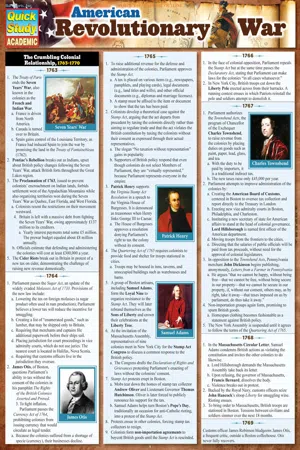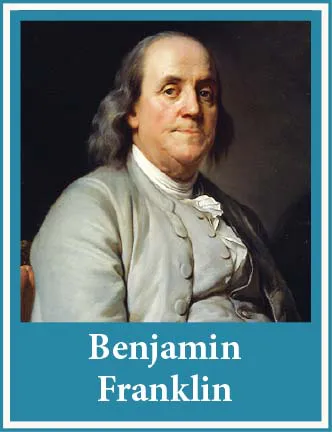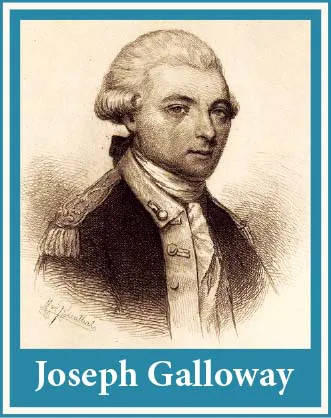
1771

In North Carolina, violence erupts as a group known as the Regulators clashes with the royal governor.

Students, history buffs and anyone interested in our founding fathers and crucial people and events that led to the formation of America can easily find answers at their fingertips. This 6-page timeline contains many facts that come up today in everything from news stories to casual conversation. Get the facts. Suggested uses:
• Students - Review before relevant history tests, support class lessons and textbook, impress your teachers & professors
• Teachers/Professors - fact bank to build tests & quizzes, lesson plan support, reference for documentary film viewing, supplement to the textbook
• Politics & Government – Facts for referencing roles of the Founding Fathers and the creation of the U.S. Constitution














